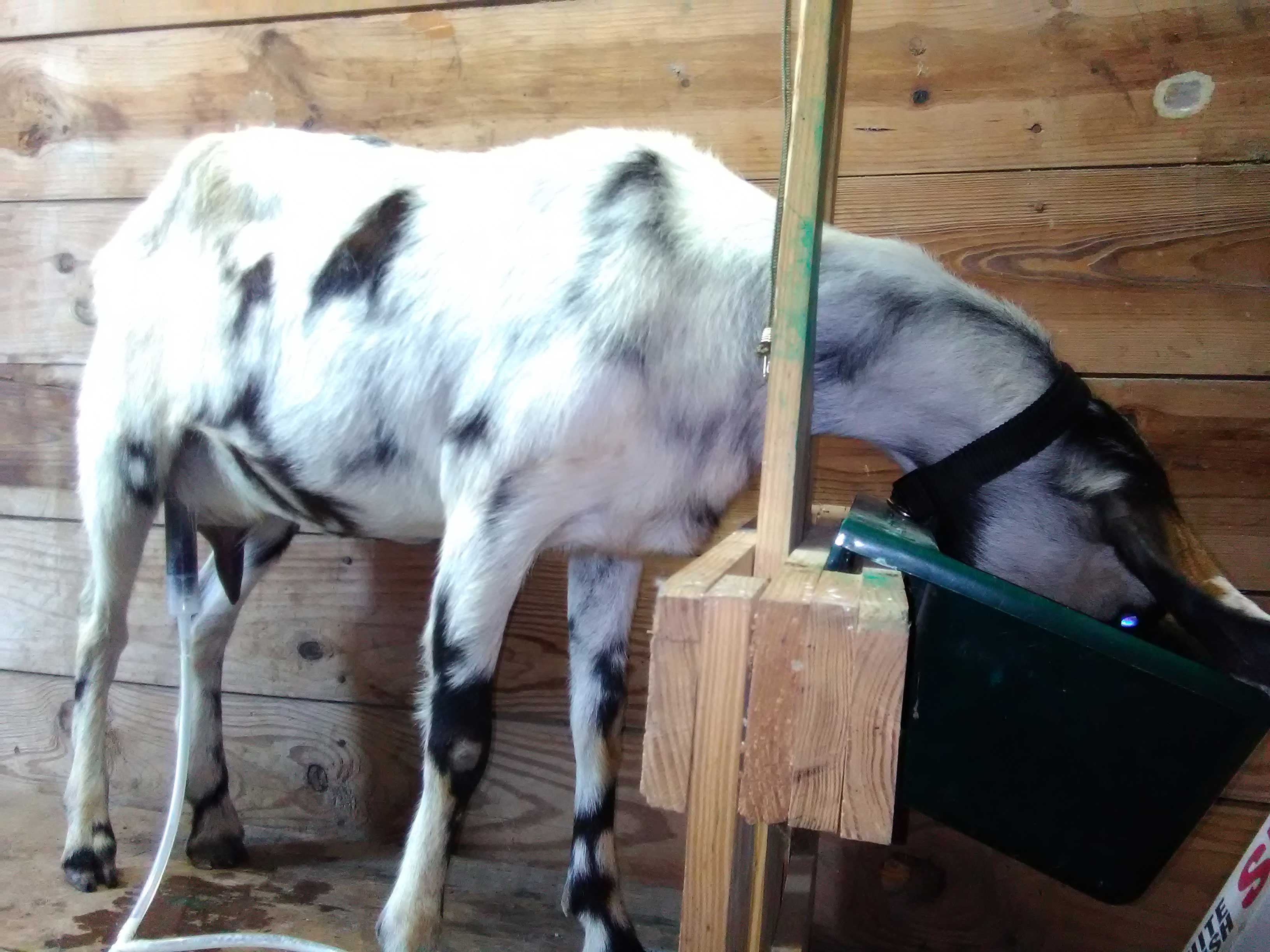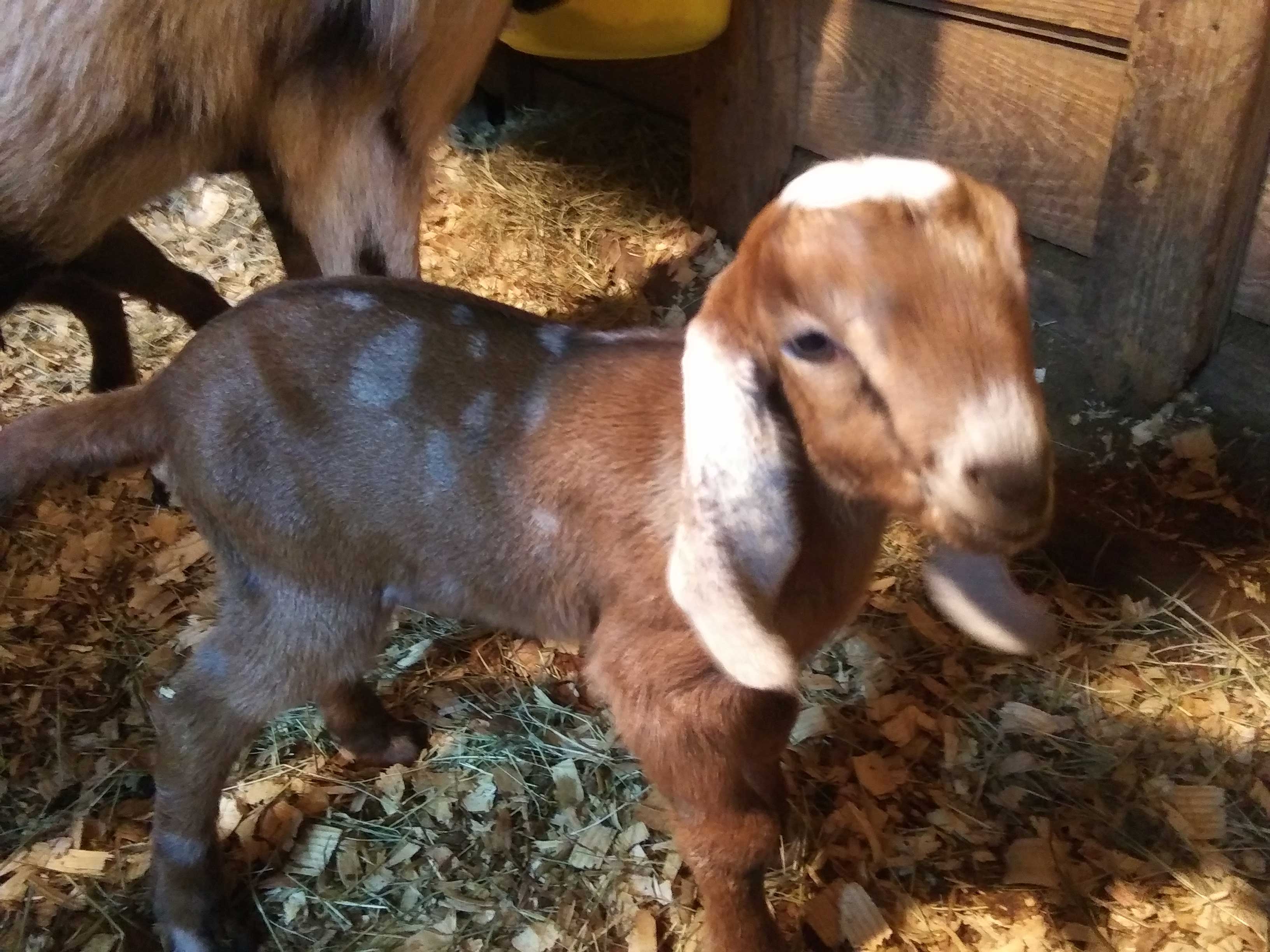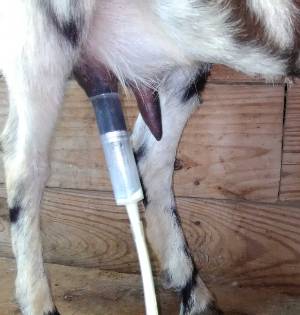Self-Sufficient U Blog
Contact
Clark County Extension Service
Amy Simpson, Horticulture
Cindy Ham, 4-H and Ag
JoAnn Vann, Family & Consumer Sciences
Phone: 870-246-2281
Email: clark-arkadelphia@uada.edu
Follow us on
Facebook
Clark County
Cooperative Extension Service
640 S 6th Street Suite B
Arkadelphia, AR 71923
It’s Milking Time! Getting started with dairy goats

By JoAnn Vann
I have raised multiple species of livestock, but I do not think there is anything
cuter than a newborn baby goat!  Full udders on my Nubian dairy does tell me when kidding time is approaching and
that means a fresh supply of milk for our homestead. My favorite things to make with
fresh milk are yogurt, soft cheeses, and soap. Goat’s milk ricotta and mozzarella
are a treat we look forward to each season when fresh milk is just a few steps to
the barn away.
Full udders on my Nubian dairy does tell me when kidding time is approaching and
that means a fresh supply of milk for our homestead. My favorite things to make with
fresh milk are yogurt, soft cheeses, and soap. Goat’s milk ricotta and mozzarella
are a treat we look forward to each season when fresh milk is just a few steps to
the barn away.
If dairy goats are a part of your self-sufficiency plan here are a few key points to keep in mind:
-
The sale of raw milk in Arkansas is allowed under a law passed in 2013.
There are restrictions and requirements that hobby farmers must follow to comply with the law. Raw milk is milk that has not been pasteurized nor homogenized (a process of breaking fat into smaller pieces so as not to separate). Raw milk laws typically refer to milk from cows or goats. Get all the facts about raw milk in Arkansas. Want to know how to pasteurize milk at home? Follow these steps for pasteurizing milk.
-
It is unlikely that you will have milk year-round.
Your does will need a break between kidding to recover and prepare for the next birth. Milk can be frozen for approximately 3 months, so be sure while production is high to freeze some for the months when production is low or non-existent. Get herd management resources including nutrition and health facts.
-
Butter, anyone? Goat’s milk is naturally homogenized compared to cow’s milk making it easier to digest.
However, if making butter is your primary goal for milk production, be prepared to invest in a cream separator. Even using an electric mixer, it is difficult to get a quantifiable amount of butter to separate from the whey with goat milk. Curious about other interesting facts about goat milk? Check out this research article from Science Direct. -
Should you do hand milking or use a home milking machine?
I have done both.
Most importantly: Sanitize your equipment
Regardless of method, proper milk machine sanitation is a must to keep milk for consumption safe. All equipment used must be sanitized before and after use.
I always practice “strip, dip, and wipe” before hand-milking or machine milking. Hand milking takes a bit of practice to avoid bruising or damaging teats and it also takes longer. I enjoy the extra time with my girls so if I only have one in need of milking, I will often grab my stainless-steel milk tote and hand milk rather than hook up my machine.
On the flip side, if I have multiple does or large quantities of milk to collect, my hands will wear completely out without my small hobby farm milking machine. It works using a vacuum seal to gently suction milk from the teat into a collection jar. These units can be ordered online. Look for units that are easy to clean because proper sanitation protocols are necessary to keep milk safe. Most come with a glass jar with screw on metal lid and plastic tubing. Be sure to order an extra lid and tube set as repeated cleaning causes the tubing to discolor and the lid to rust over time. Once this happens, replace them with a new lid and tubing or more frequently per your machine’s instruction manual.
I use my original lid and tubing (about 4 years old) to collect a small amount of milk for soap making. I sanitized the lid and tubing prior to and after use even though this milk will not be consumed to ensure that I did not introduce bacteria onto my does teat. You can see the slight rust on the lid rim and the tubing is no longer completely transparent. I replaced them this year with a new set that I use only for milk that will be processed for food products.
I hope these tips give you some food for thought when considering dairy goats in building your self-sufficiency plan. I certainly enjoy mine and love to see kids showing them as 4-H projects. They truly are a multi-purpose animal.
Related resources
Grow Your Own Groceries:
Gardening from the Ground UP:
Beekeeping - Apiculture in Arkansas
Take the Hobby and Small Flock Poultry in Arkansas course
Arkansas Food Freedom Act for homemade food sales
Arkansas Emergency Preparedness
Food Preservation:
Podcasts:
Around the Homestead Podcast:
Beekeeping Basics Podcast